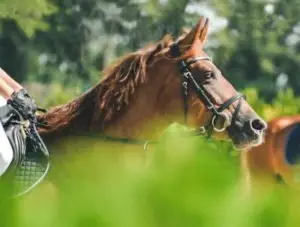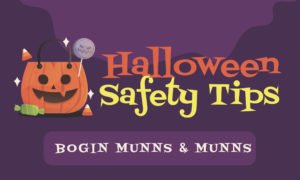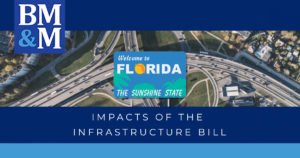
It should come as no surprise that this series has paid close attention to the recent Coronavirus/COVID-19 pandemic and its health and economic effects. 1 This is because the effects of the pandemic have been – and still are being – felt far and wide.
No industry in Florida is exempt. Including its equine industry. 2 Certainly the humans involved are subject to the disease. It should be noted that the type of coronavirus which horses can contract is a different disease. 3
The financial impacts on the equine industry is basic in nature and profound in impact. Cash flows are severely disrupted. For example, horse lessons are not occurring. Horse competitions are cancelled. Transportation is – to coin a phase – stalled. And yet expenses continue to accrue.
Of course, the financial grants and loans available to businesses are likewise accessible to horse owners, operators, and other vendors. 4 And there are specific informational and other support resources available to horse owners. 5
There is an additional and important factor regarding the equine industry. That is, horses require ongoing care. Barn life, turn-outs, feed, hoof care, and veterinary and dental care, among other things. And horses are herd animals, so they likewise need social attention with their people and ‘barn buddies’. 6
That being the case, what does an owner do who loses their job or income stream? The following are certain measures suggested by the American Horse Council. 7
- Reduce feed and bedding costs by increasing turn-out time, conscious, however, of avoiding colic and other grass-diet related equine diseases 8
- Negotiate hay deliver schedules to spread out expenditure, but understand hay producers are small businesses, as well
- Reduce gain costs by incorporating hay cubes and other extenders, with veterinarian input
- Temporarily decrease horse shoeing (that is, let horses go ‘barefoot’), with veterinarian and farrier input
- But still do maintain routine veterinary care, which:
includes vaccinations, fecal counts/deworming, and hoof trims and shoes. Skimping in these areas now will quite possibly lead to bigger, more expensive problems down the road – the old “penny wise, pound foolish” saying comes to mind. Since it’s unlikely you’ll be traveling to shows or competitions, ask your vet to administer only the core vaccines. 9
- Try to reduce costs by expense-sharing at a barn
- Lease horses to allocate-out care and costs, being sure to identify rights and responsibilities in the lease documents
Absolutely what not to do? Do not simply abandon horses. 10 Period.
Click to learn about more about Bogin, Munns & Munns’ practice areas.
For information about Bogin, Munns & Munns’ own response to Coronavirus readiness.
=====================
Note: Citations are given to the sources to respect the original authors’ copyrights.
1 The Greater Gainesville Chamber Of Commerce Report, Flash Notice for Florida Employers – OSHA’s Covid-19, An Important COVID-19 Benefits Application Deadline, New Safety Training Courses Are Available For Florida’s Businesses, Preparing For That Which Cannot Be Prepared,
Florida Prepares To Re-Open On May 4, 2020, https://www.boginmunns.com/business-stops-in-its-tracks/, Another Timely Coronavirus/Covid-19 Update, Additional Resources for Florida’s Businesses, A brief note for Florida’s individuals, families, and businesses about extensions, Coronavirus/COVID-19 pandemic state, The Paycheck Protection Program, Resources for Florida’s businesses, families, and individuals, Do You Count?, Life in Times of Coronavirus.
2 See Orlando Equine Law and Legal Matters Related to Horses, Orlando Equine Law and Legal Matters Related to Horses.
3 See Coronavirus Disease Resources and Updates.
4 Ibid. at 1.
5 See CORONAVIRUS RESOURCES FOR HORSE OWNERS, Coronavirus Disease Resources and Updates.
6 Full disclosure: This writer and his family are ‘horse people’, and have owned a number of ponies and horses.
7 See US Hunter Jumper Association Launches Feed Aid Initiative for a feed-related financial aid program.
9 See ibid at 7.
10 See AMERICAN HORSE COUNCIL’S UNWANTED HORSE COALITION TRANSITIONS TO NEW NAME AND FOCUS, The Unwanted Horse and Horse Slaughter.
– For more information, call Philip N. Kabler of the Gainesville, FL office of Bogin, Munns & Munns at 352.332.7688, where he practices in the areas of business, banking, real estate, and equine law. He has taught business and real estate law courses at the University of Florida Warrington College of Business Administration and Levin College of Law and is the President-Elect of the Eighth Judicial Circuit Bar Association.
NOTICE: The article above is not intended to serve as legal advice, and you should not rely on it as such. It is offered only as general information. You should consult with a duly licensed attorney regarding your Florida legal matter, as every situation is unique. Please know that merely reading this article, subscribing to this blog, or otherwise contacting Bogin, Munns & Munns does not establish an attorney-client relationship with our firm. Should you seek legal representation from Bogin, Munns & Munns, any such representation must first be agreed to by the firm and confirmed in a written agreement.




